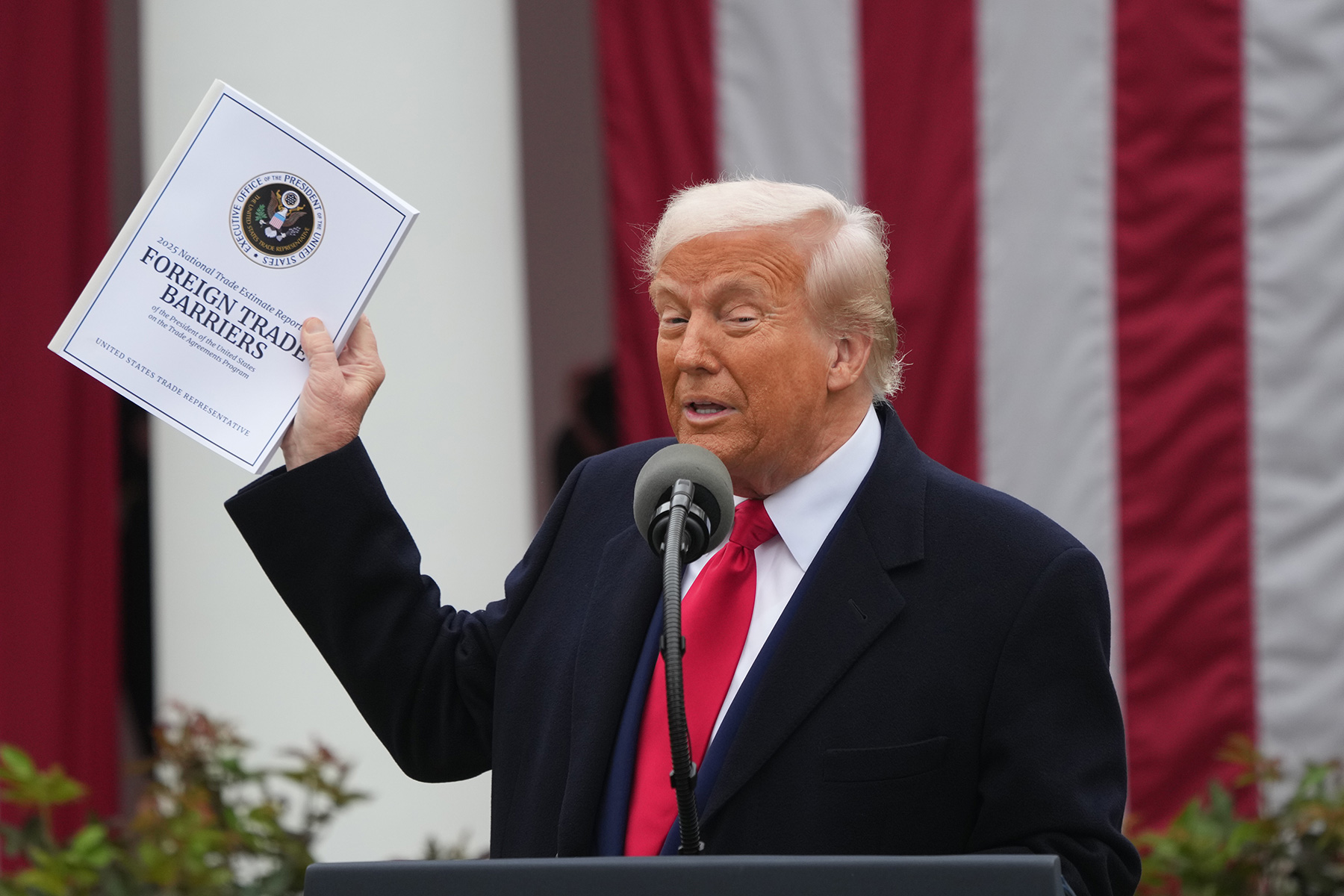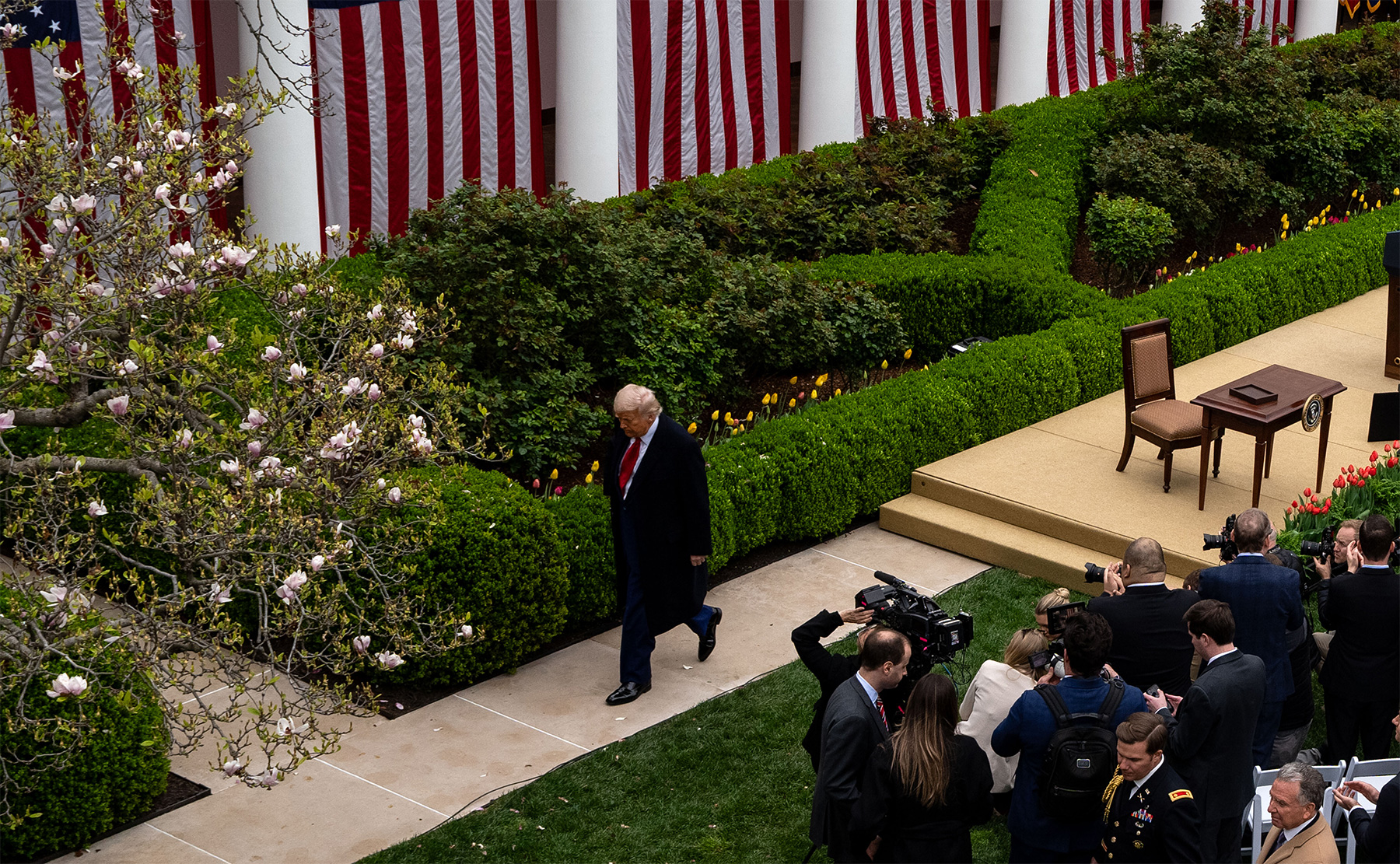Every cloud has a silver lining. So does Trump’s punitive tariff policy, announced on April 2nd, 2025, despite the prevailing reaction, characterizing this policy decision as chaotic and inimical to the established global trade framework. While widely perceived as disruptive and deconstructive, it serves as one of the accelerating forces in the all-dimensional restructuring taking place in international relations.
As the world tries to make sense of what this blanket tariff policy means for—and how it affects—their economies, speculation outweighs substantiation within the global economic matrix of what can be termed the late stage of capitalism. It has already had first- and second-order consequences, with market crashes being the first—yet more is to come, with ripple effects that will be the subject of future analyses. It is a sobering moment —one that calls on all governments around the world to think carefully and strategize accordingly. In and of itself, such a policy move should not be dismissed as mere inanity on the part of the Trump Administration but must be examined scrupulously.
Behind the noise of Trump’s tariff theatrics, however, a silent momentum is building in the background. The world is steadily shifting toward a multipolar order with growing conviction, with BRICS playing a key role, as the global majority becomes increasingly aware of the true nature of unilateralism under a unipolar system. As multipolarity gains ground, Trump’s detached-from-prudence tariff policy proves to be part of a requiem for the unipolar world order. However, it expedites the shift toward multipolarity—one in which there is no place for a single hegemon that rejects dialogue grounded in respect, equality, and mutual benefit.
No country or nation on this planet is inherently exceptional, nor should any act with a sense of entitlement. Instead, those who safeguard the international system, with the United Nations at its core, should be exemplified and looked up to. At this point, the key policy question that Trump and his economic advisors might consider is: “Will there even be a need for the U.S. security and financial umbrella in the coming decade?”
No matter how much Trump’s advisors portray the U.S. as the beacon of peace and prosperity to the global majority, its current track record reveals a different picture. In light of this, the policy choices of the global majority moving forward are of paramount importance in strengthening the multipolar system where all voices matter and hold equal weight.
As the global landscape continues to evolve, the year 2025 also marks the 70th anniversary of the Bandung Conference, a pivotal moment in the post-World War II era that laid the groundwork for a multipolar global system and emphasized multilateralism. At no time in history has this mission been more important for global security and economic prosperity than it is today. As such, there must be a concerted effort against unipolar dictates, aligned with the growing momentum toward a multipolar world order grounded in international law, justice, and equality.
Every cloud has a silver lining. So does Trump’s punitive tariff policy, announced on April 2nd, 2025, despite the prevailing reaction, characterizing this policy decision as chaotic and inimical to the established global trade framework. While widely perceived as disruptive and deconstructive, it serves as one of the accelerating forces in the all-dimensional restructuring taking place in international relations.
As the world tries to make sense of what this blanket tariff policy means for—and how it affects—their economies, speculation outweighs substantiation within the global economic matrix of what can be termed the late stage of capitalism. It has already had first- and second-order consequences, with market crashes being the first—yet more is to come, with ripple effects that will be the subject of future analyses. It is a sobering moment —one that calls on all governments around the world to think carefully and strategize accordingly. In and of itself, such a policy move should not be dismissed as mere inanity on the part of the Trump Administration but must be examined scrupulously.
Once the proud architect of the very international trading system it now laments, the U.S. has essentially reneged on the World Trade Organization (WTO) framework it once meticulously built. This overhaul, instigated by the Trump Administration, comes at a time when the U.S. seeks to address its current account deficit while maintaining the net outflow of dollar liquidity to the rest of the world. Through “reciprocal tariffs,” Trump also intends to transform the U.S. from a service-based economy back into the manufacturing-based one it once was. While Trump’s concern is understandable from a “Make America Great Again” perspective, he and his economic team—like many of their predecessors —fail to accurately pinpoint the root causes of the United States’ growing economic malaise. Addressing symptoms instead of curing the disease itself will hardly make America great again.
In his paper, [1]“A User’s Guide to Restructuring the Global Trading System,” Stephen Miran, the chair of the U.S. Council of Economic Advisers under Trump, invokes the Triffin Dilemma as an underlying cause of the United States’ economic predicament. “In the Triffin world,” Miran contends, “the reserve asset producer must run persistent current account deficits as the flip side of exporting reserve assets.”
More recently, in his speech [2] on April 7 at the Hudson Institute, Miran reinforced rationale for the tariff policy mentioned earlier in his paper. In addition, he has outlined five means by which other states can alleviate the economic burden of the U.S., so that it is able to maintain its exorbitant privilege. Miran’s speech is marked by contradictions, laced with vainglory, and amounts to a pronounced manifestation of “American exceptionalism.” To reference just one example, does Miran truly believe that “the United States provides a security umbrella which has created the greatest era of peace mankind has ever known”? Where was this so-called security umbrella when it came to the rights of Palestinians, whose rights have been disproportionately violated and subjected to systematic extermination since October 7, 2023?
The Triffin Dilemma, firstly, is not iron law; it only outlines a tendency. Secondly, the dynamics of the dilemma have changed significantly since Robert Triffin first propounded it. Seen from this angle, it primarily depends on how the reserve country manages its economic policy as a whole, not just its trade policy in isolation. Thirdly—and more crucially—there is no mention at all of how the U.S. economy was reshaped in the 1970s, mainly through financialization and offshoring, alongside a confrontational foreign policy that had long been in place and continues to this day. No doubt, maintaining such a global assertion comes at a cost. Here lie the root causes of the intractable policy problems facing the U.S. economy, not in other nations “ripping off” the U.S.
At its core, economic policymaking is all about finding a delicate balance between market-driven and state-led resource allocation, with the ultimate aim to serve the people. The U.S. is no exception. In foreign policy, in the case of the U.S., it was all about not believing in “the end of history” following the purported end of the Cold War—an opium for those responsible for policymaking. Unwilling to acknowledge this, Trump and his economic advisers choose to point fingers at other countries, prioritizing U.S. interests over the common good of the international community through unilateralism and economic bullying. It is no longer a viable policy instrument in the realm of high politics. To quote John Dewey: “As long as politics is the shadow of big business, the attenuation of the shadow will not change the substance.” [3]
A growing inequality gap, overstretched military and severe budgetary pressures are also some of the contributing factors to a seething resentment within certain sectors of the U.S. population. It is not due to the pretext that China—or any other country—has pillaged America, in the words of Stephen Miller. [4] It may provide a false sense of security and consolation but is not a long-term solution for the aches felt by Americans today. The U.S. is now in an entirely different world than it was in the 1950s; so are China and the rest of the world. Unable to factor this reality into their policies, Trump’s economic team—and Trump himself, as the head of government—reveals a major shortcoming.
Behind the noise of Trump’s tariff theatrics, however, a silent momentum is building in the background. The world is steadily shifting toward a multipolar order with growing conviction, with BRICS playing a key role, as the global majority becomes increasingly aware of the true nature of unilateralism under a unipolar system. As multipolarity gains ground, Trump’s detached-from-prudence tariff policy proves to be part of a requiem for the unipolar world order. However, it expedites the shift toward multipolarity—one in which there is no place for a single hegemon that rejects dialogue grounded in respect, equality, and mutual benefit.
No country or nation on this planet is inherently exceptional, nor should any act with a sense of entitlement. Instead, those who safeguard the international system, with the United Nations at its core, should be exemplified and looked up to. At this point, the key policy question that Trump and his economic advisors might consider is: “Will there even be a need for the U.S. security and financial umbrella in the coming decade?”
No matter how much Trump’s advisors portray the U.S. as the beacon of peace and prosperity to the global majority, its current track record reveals a different picture. In light of this, the policy choices of the global majority moving forward are of paramount importance in strengthening the multipolar system where all voices matter and hold equal weight.
As the global landscape continues to evolve, the year 2025 also marks the 70th anniversary of the Bandung Conference, a pivotal moment in the post-World War II era that laid the groundwork for a multipolar global system and emphasized multilateralism. At no time in history has this mission been more important for global security and economic prosperity than it is today. As such, there must be a concerted effort against unipolar dictates, aligned with the growing momentum toward a multipolar world order grounded in international law, justice, and equality.
1. A User’s Guide to Restructuring the Global Trading System. (2024, November). Hudson Bay Capital. Retrieved April 7, 2025, from https://www.hudsonbaycapital.com/documents/FG/hudsonbay/research/638199_A_Users_Guide_to_Restructuring_the_Global_Trading_System.pdf
2. The United States Government. (2025, April 7). CEA chairman Steve Miran hudson institute event remarks. The White House. Retrieved April 9, 2025, from https://www.whitehouse.gov/briefings-statements/2025/04/cea-chairman-steve-miran-hudson-institute-event-remarks/
3. This condition holds true for every government, not just the U.S.
Stephen Miller [@StephenM]. (2025, April 9). “The days of China pillaging America are over.” [X post]. X. https://x.com/StephenM/status/1910027211358503088







